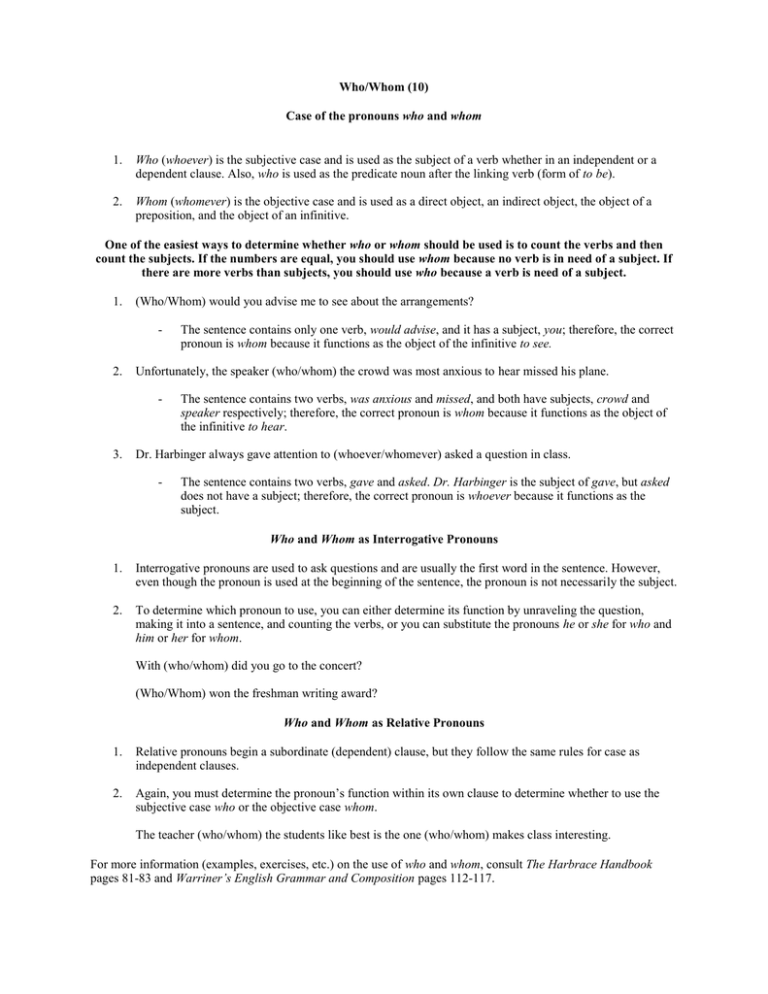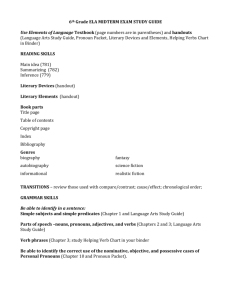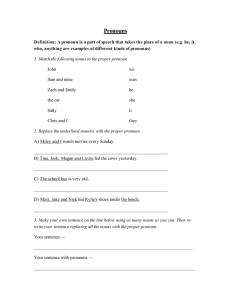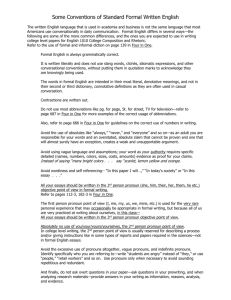Who/Whom Tutorial
advertisement

Who/Whom (10) Case of the pronouns who and whom 1. Who (whoever) is the subjective case and is used as the subject of a verb whether in an independent or a dependent clause. Also, who is used as the predicate noun after the linking verb (form of to be). 2. Whom (whomever) is the objective case and is used as a direct object, an indirect object, the object of a preposition, and the object of an infinitive. One of the easiest ways to determine whether who or whom should be used is to count the verbs and then count the subjects. If the numbers are equal, you should use whom because no verb is in need of a subject. If there are more verbs than subjects, you should use who because a verb is need of a subject. 1. (Who/Whom) would you advise me to see about the arrangements? - 2. Unfortunately, the speaker (who/whom) the crowd was most anxious to hear missed his plane. - 3. The sentence contains only one verb, would advise, and it has a subject, you; therefore, the correct pronoun is whom because it functions as the object of the infinitive to see. The sentence contains two verbs, was anxious and missed, and both have subjects, crowd and speaker respectively; therefore, the correct pronoun is whom because it functions as the object of the infinitive to hear. Dr. Harbinger always gave attention to (whoever/whomever) asked a question in class. - The sentence contains two verbs, gave and asked. Dr. Harbinger is the subject of gave, but asked does not have a subject; therefore, the correct pronoun is whoever because it functions as the subject. Who and Whom as Interrogative Pronouns 1. Interrogative pronouns are used to ask questions and are usually the first word in the sentence. However, even though the pronoun is used at the beginning of the sentence, the pronoun is not necessarily the subject. 2. To determine which pronoun to use, you can either determine its function by unraveling the question, making it into a sentence, and counting the verbs, or you can substitute the pronouns he or she for who and him or her for whom. With (who/whom) did you go to the concert? (Who/Whom) won the freshman writing award? Who and Whom as Relative Pronouns 1. Relative pronouns begin a subordinate (dependent) clause, but they follow the same rules for case as independent clauses. 2. Again, you must determine the pronoun’s function within its own clause to determine whether to use the subjective case who or the objective case whom. The teacher (who/whom) the students like best is the one (who/whom) makes class interesting. For more information (examples, exercises, etc.) on the use of who and whom, consult The Harbrace Handbook pages 81-83 and Warriner’s English Grammar and Composition pages 112-117.






